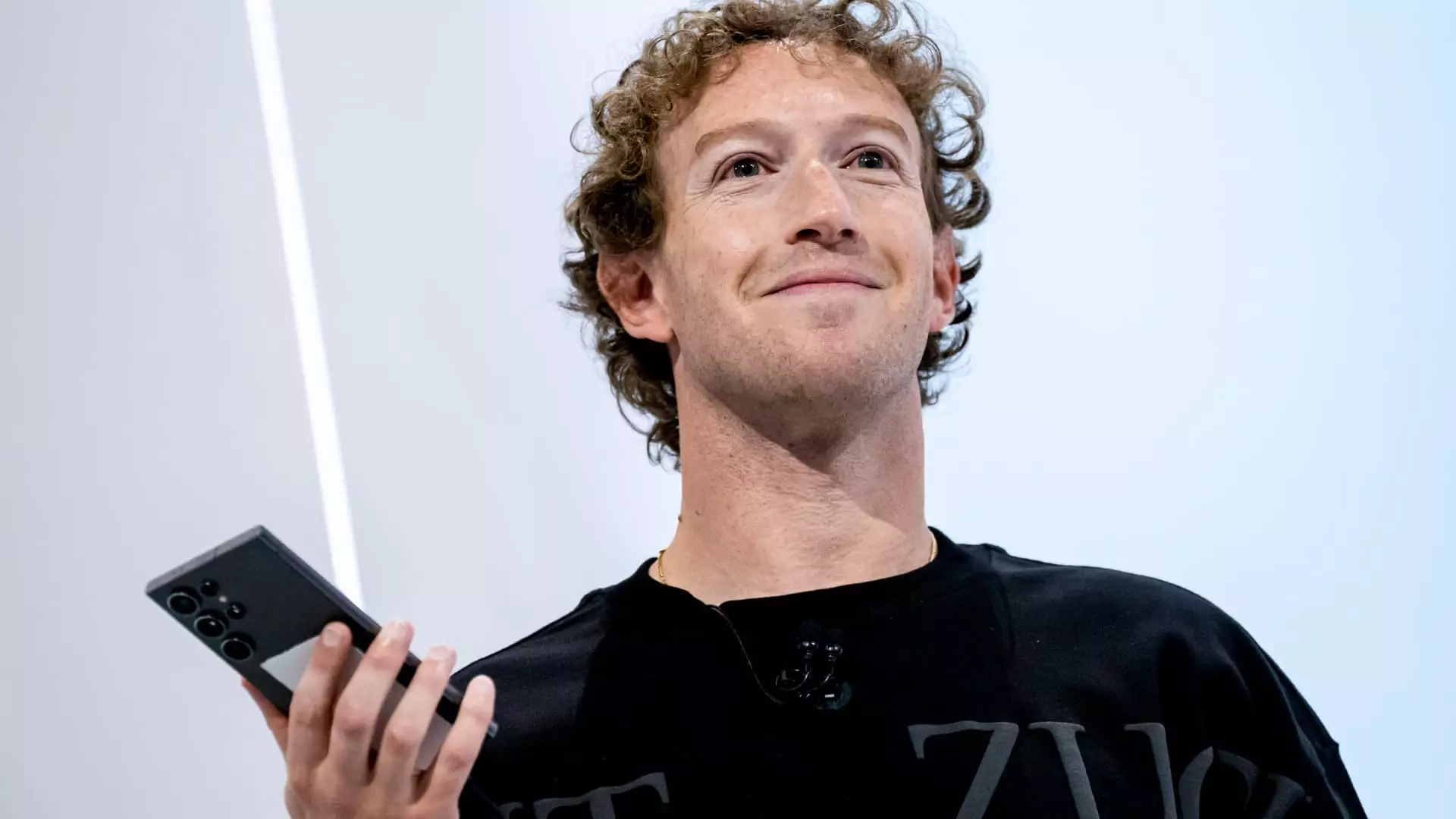The tech industry is no stranger to rivalries, but few are as prominent as the one between Meta and Apple. Recently, Mark Zuckerberg, CEO of Meta, delivered a scathing critique of Apple’s innovation trajectory during an appearance on the “Joe Rogan Experience.” This critical examination sheds light on a larger conversation about tech innovation, consumer choices, and corporate practices.
Zuckerberg acknowledged the iPhone’s monumental impact on global connectivity, stating, “On the one hand, [the iPhone has] been great, because now pretty much everyone in the world has a phone.” This statement encapsulates an essential truth: the iPhone has revolutionized communication and technology access. However, Zuckerberg quickly juxtaposed this acclaim with criticism, arguing that Apple has not produced significant innovations in the past two decades. In his view, the legacy of Steve Jobs is not a wellspring of ongoing ingenuity but rather a stagnant pool.
The CEO’s remarks suggest a belief that while Apple has set a foundation for smartphone technology, it has failed to build upon that legacy in meaningful ways. The insinuation that post-Jobs Apple is merely coasting on its past successes raises questions about the company’s future direction. If innovation is the heartbeat of the tech sector, then stagnation could spell trouble for a company that once defined the industry’s cutting edge.
Zuckerberg’s criticism doesn’t end with innovation; he took aim at Apple’s financial strategies as well. He pointed out that sluggish iPhone sales may be a symptom of incremental upgrades rather than revolutionary changes, forcing consumers to hold onto their devices longer. This stagnation in the product lifecycle seemingly compels Apple to rely on alternative revenue streams, consistently drawing a 30% commission from app developers and encouraging purchases of accessories.
By suggesting that Apple’s strategy revolves around “squeezing” consumers, Zuckerberg highlights a pressing concern in the tech ecosystem. In a world where ethics in consumer pricing and transparency are increasingly demanded by consumers, the practices of tech giants become more scrutinized. This tension between profit motives and consumer loyalty creates a battleground for consumers, developers, and even the companies themselves.
In defending its practices, Apple often invokes the banner of consumer privacy and security. Zuckerberg, however, rejected this rationale, asserting that Apple’s so-called security concerns serve as a barrier to innovation. His argument relies on the premise that if Apple invested more in security protocols instead of monopolizing connectivity, it could foster a more open environment for diverse product development.
The ongoing debate about user privacy versus accessibility engages not just Meta and Apple, but the entire tech ecosystem. Zuckerberg’s challenge to Apple’s authority raises questions about the producer-consumer relationship and how it shapes market opportunities.
Zuckerberg also took the opportunity to address Apple’s recent foray into augmented and virtual reality with the Vision Pro headset. While cautiously optimistic, he admitted the initial product rollout did not meet expectations. This comment emphasized that even tech giants do not always hit the mark upon their first attempts.
In positioning Meta’s Quest headset against Apple’s Vision Pro, Zuckerberg framed the discussion around failure, iteration, and learning. His willingness to acknowledge the shortcomings of Apple’s product while defending the iterative nature of development reflects a broader understanding of innovation as a process rather than merely a series of milestones.
Ultimately, Mark Zuckerberg’s critique of Apple is more than a personal grievance; it symbolizes a critical juncture for innovation within the tech industry. As competition intensifies and consumer expectations shift, both companies must reevaluate their strategies in pursuit of genuine innovation. The world is eager for transformative technology that enhances everyday life rather than the perpetuation of outdated business models.
Zuckerberg’s distancing from Apple’s approach serves not only to unify Meta’s branding but also invites similar scrutiny across the industry. As the market landscape becomes increasingly complex, it is innovation, responsiveness to consumer needs, and ethical practices that will determine which companies thrive in the years to come.


Leave a Reply